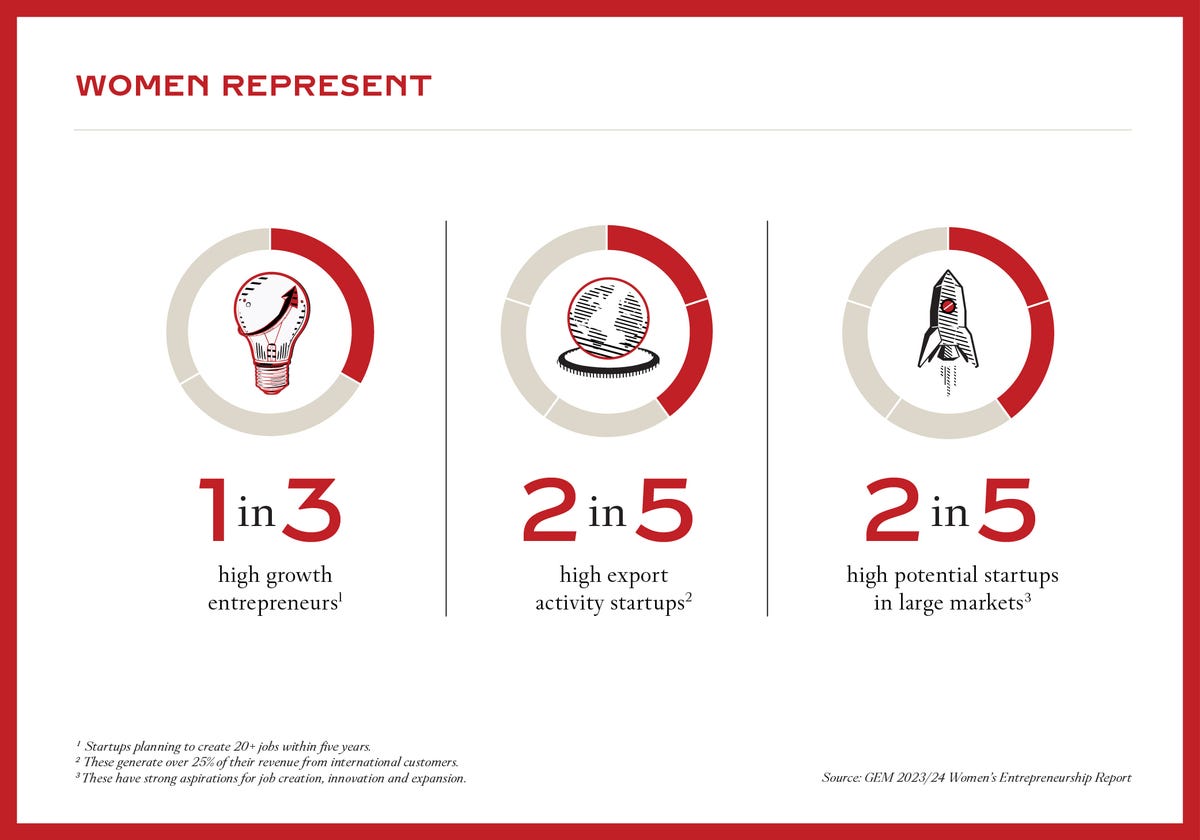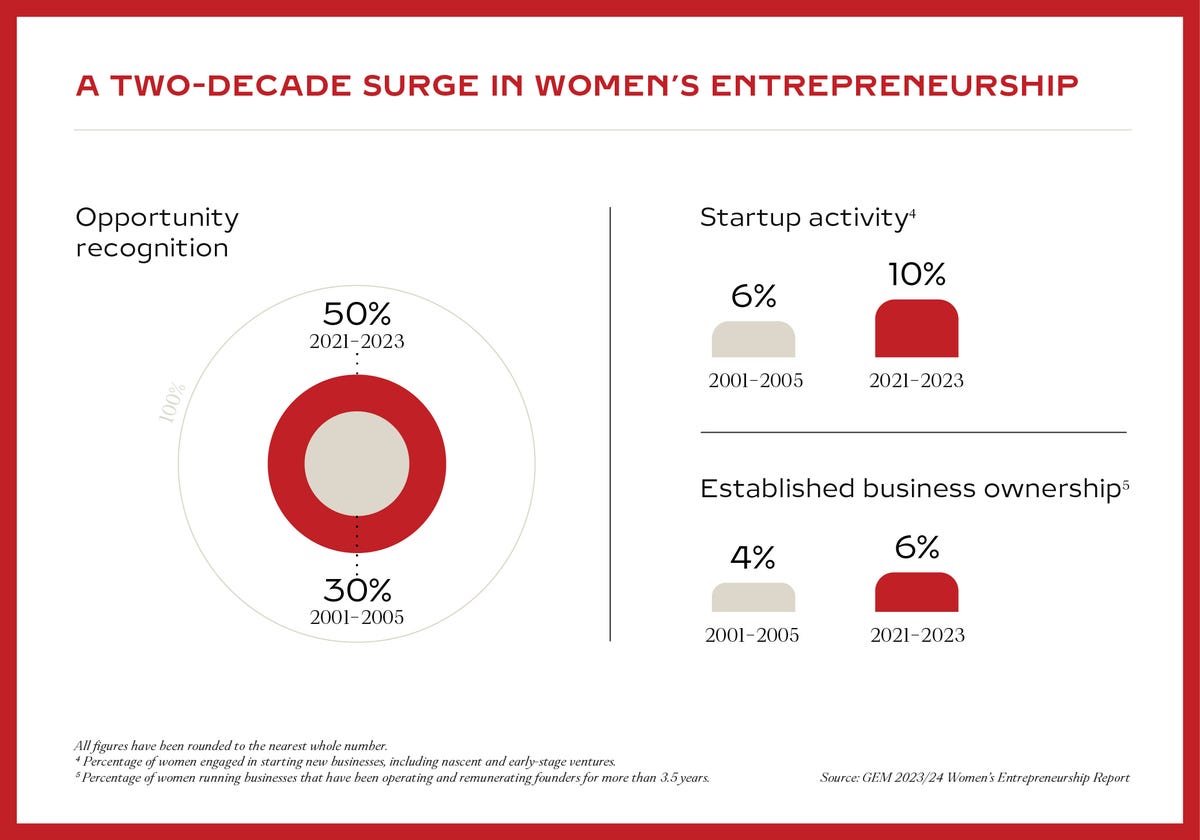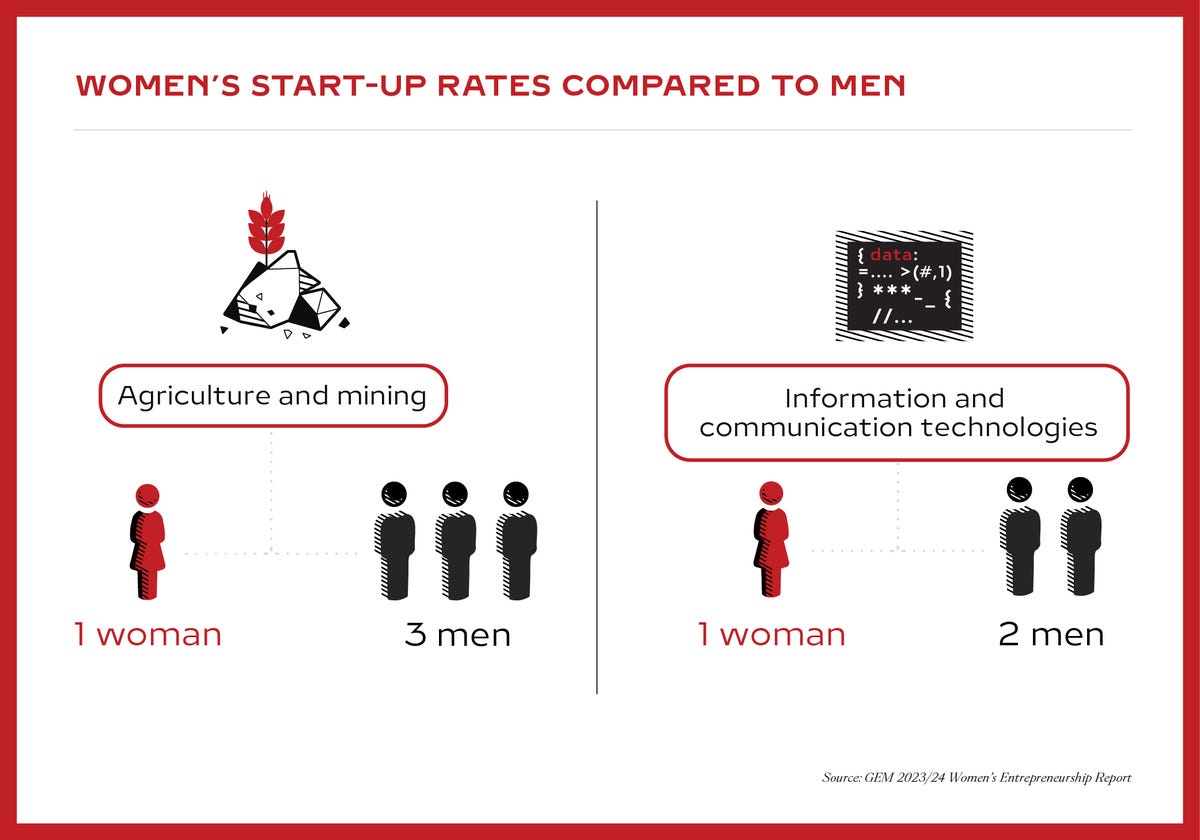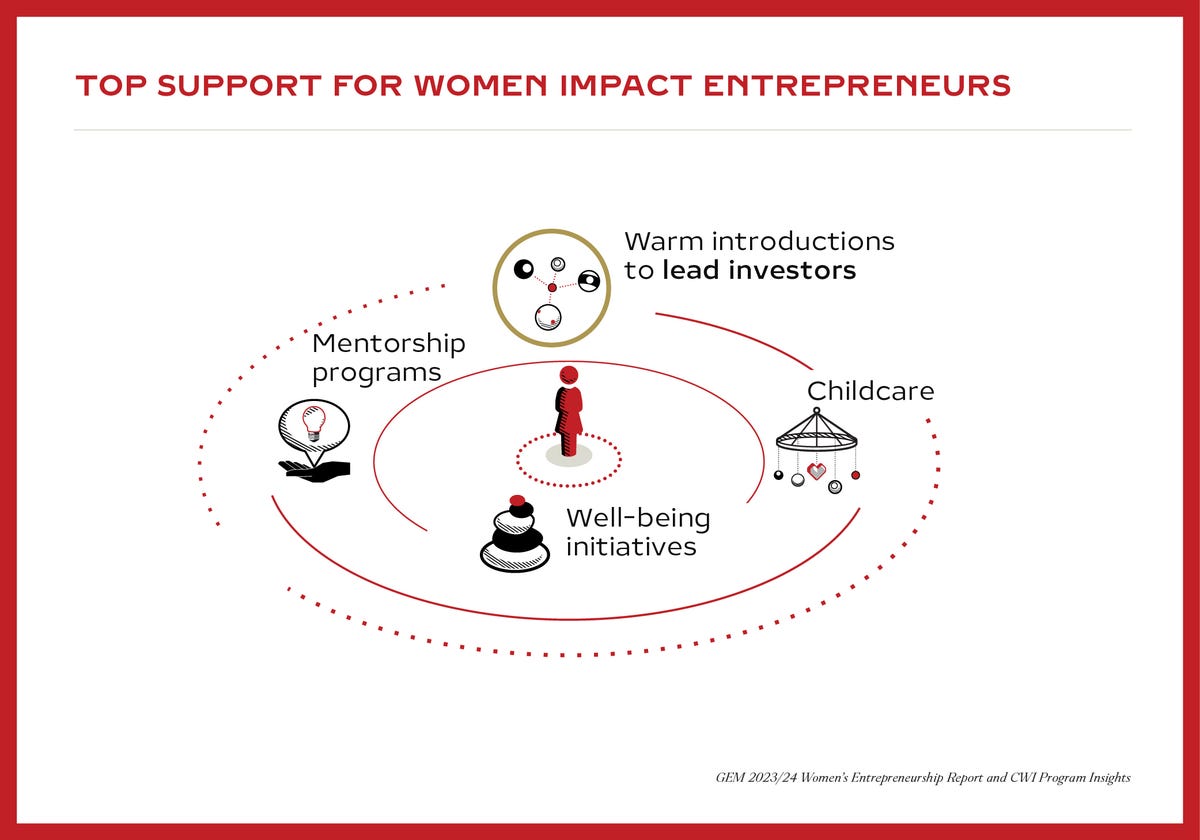Women Entrepreneurs Are Changing the Game — Let's Take Them to the Next Level
by Wingee Sin
Women entrepreneurs don’t just create businesses — they transform communities, fuel innovation and drive economic progress. Their ventures lay the groundwork for a more inclusive future, generating value on both a local and global scale. Yet, despite their remarkable impact, women still face significant barriers — from limited access to funding and networks to deeply ingrained stereotypes that hinder their growth.
The GEM 2023/24 Women’s Entrepreneurship Report marks 25 years of data collection, making it one of the most extensive and longstanding studies on entrepreneurship globally. This year’s report, covering 46 countries, offers a comprehensive look at the progress, challenges and opportunities shaping women’s entrepreneurship today. The report shows us that women are thinking big, breaking into emerging industries and leading impact-driven businesses. What steps can we take to unlock their full potential?
Here are five major takeaways from this year’s GEM Women Entrepreneurship Report for policymakers, investors and supporters to draw on:
1. Women entrepreneurs are thinking big, and successfully turning vision into impact.
Over the past two decades, opportunity recognition — the ability to see new business prospects — has surged by nearly 80% for women. In 2023, women represented one in three high-growth entrepreneurs and two in five startups with high export activity. They also account for about two-fifths of high-potential startups in large markets. In other words, women are generating value, innovation and employment on a global scale. Their growing presence in high-potential entrepreneurship signals a shift from simply participating in entrepreneurship to shaping industries, influencing investment trends and contributing to broader economic transformation.

2. Women are starting businesses at record rates. Now they need support to scale.
Since the first GEM report, the rate at which women start new businesses increased from 6.1% to 10.4% across 30 GEM-participating countries between the 2001-2005 and 2021-2023 surveys. However, established business ownership rates showed a smaller increase, from 4.2% to 5.9%. This tells us that women are already launching ventures at a strong pace, but the real challenge is scaling them. For organizations looking to move the needle, the priority should be supporting women-led businesses that are already up and running, but need resources to sustain long-term growth.

3. Despite barriers, women are breaking into emerging industries. Let’s amplify their role.
Women continue to be underrepresented in industries such as Information and Communication Technology (ICT) and Agriculture and Mining, where they start businesses at half and one-third the rate of men, respectively. In the rapidly-growing AI sector, reports from UNESCO also highlight a persistent gender gap, which affects both leadership and innovation. Yet, women are far from absent from the sector: several AI unicorns, such as Adept AI, Replit and Imbue, were co-founded by women and secured major funding in 2023. Raising the visibility of women entrepreneurs in these fields can drive recognition, attract investment and inspire future generations.

4. Networks and investment matter. Women need access to both.
Strong networks and investment opportunities are essential for entrepreneurial growth, but access remains unequal. Women are 10% less likely than men to know an entrepreneur and over 30% less likely to have recently invested in a business. These gaps in social and financial capital create real barriers to business growth and longevity. Expanding mentorship programs, facilitating warm introductions to lead investors and providing targeted support, such as childcare and well-being initiatives, can make a critical difference. Strengthening these connections will help women-led businesses scale, compete and thrive.

5. Women are embracing impact entrepreneurship. Let’s connect them across borders.
In high- and middle-income countries, women entrepreneurs are more likely than men to integrate sustainability strategies into their businesses. However, in low-income countries, women are slightly less likely to do so. Global programs like the Cartier Women’s Initiative play a crucial role in fostering a network where women entrepreneurs across different geographies can learn from each other, share best practices and gain access to resources that help them scale their impact businesses. Recognizing and amplifying the success of women-led sustainable ventures can further inspire innovation and investment in impact entrepreneurship worldwide.
Women entrepreneurs have made remarkable strides in recent years, but systemic barriers still exist. The focus must now shift towards sustaining and scaling women-led businesses, particularly in high-growth industries.
For policymakers, investors and entrepreneurial networks, the message is clear: expanding access to capital, strengthening business networks and enhancing visibility are key to unlocking the full potential of women entrepreneurs.
By taking concrete steps today, we can propel women entrepreneurs to even greater heights — growing their businesses, scaling their impact and driving change worldwide.
Read the full 2023/2024 GEM Women’s Entrepreneurship Report here.
Or, for insight into the previous GEM Women’s Entrepreneurship Report 2022/23: Challenging Bias and Stereotypes, click here.
Wingee Sin is the Global Program Director of the Cartier Women’s Initiative.